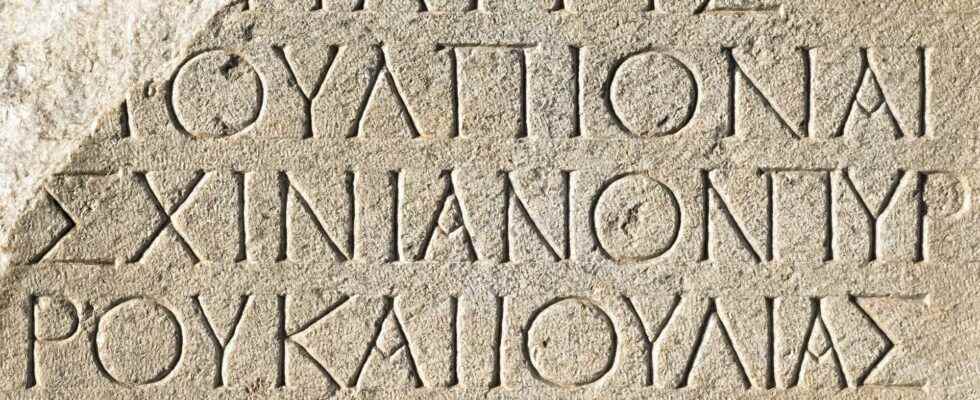The historians of ancient Greece will now be able to count on a new tool for the study of ancient texts. The company DeepMind has developed Ithaca, an artificial intelligence capable of filling holes in old damaged inscriptions.
You will also be interested
[EN VIDÉO] Interview: how was artificial intelligence born? Artificial intelligence aims to mimic the functioning of the human brain, or at least its logic when it comes to making decisions. Jean-Claude Heudin, director of the research laboratory of the IIM (Internet and Multimedia Institute), explains the origin of this research.
The British company DeepMindsister company of Google, continues to decline its artificial intelligence (IA). This time, the company is tackling texts in ancient Greek. In an article published in the journal Naturethey feature Ithaca, a deep neural network that assists historians.
Epigraphy is the study of ancient inscriptions made on stone, pottery or metal. This allowed them to survive until our time, but very often the support has been damaged or fragments are missing, making reading impossible. Historians must then compare to other texts to try to fill in the gaps and estimate the date and place of writing.
A tool to assist historians
DeepMind, in collaboration with several universities, trained Ithaca on 78,608 written registrations in ancient Greek between the VIIand century BC. AD and the Vand century AD, and coming from all around the Mediterranean. AI suggests several solutions for a missing fragment, whether a few letters or several words, with an estimate of the probability. It achieves an accuracy of 62% in text restoration. She manages to identify the geographical origin of the inscription with an accuracy of 71% and its date of writing within 30 years.
Ithaca is not intended to replace the work of historians, but constitutes an additional tool which needs to be supervised by specialists. Experts alone have managed to restore old texts with an accuracy of only 25%, a figure that increases to 72% with the help of AI. The teams intend to extend artificial intelligence to other ancient languages, such as Akkadian, Demotic, Hebrew and the mayan.
Interested in what you just read?
